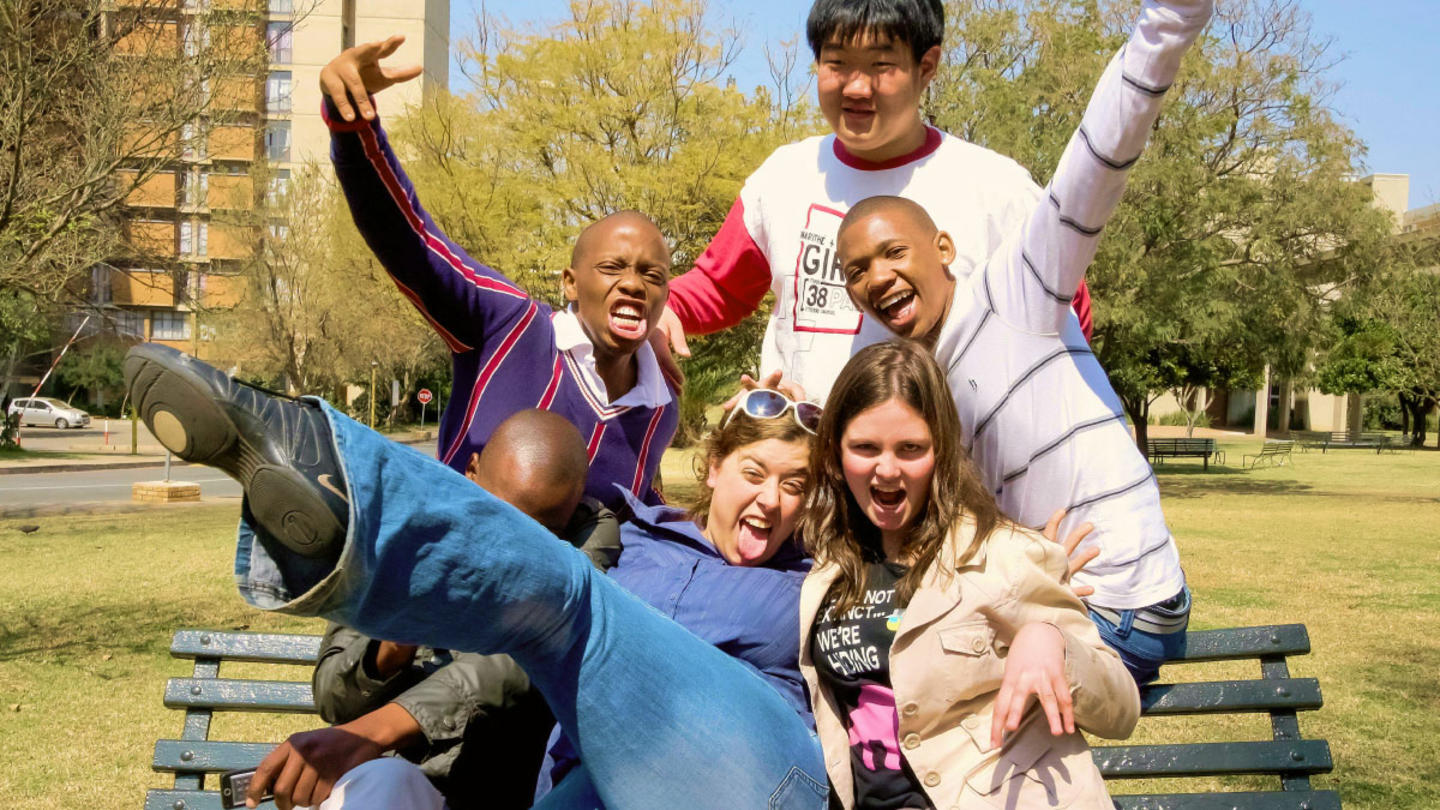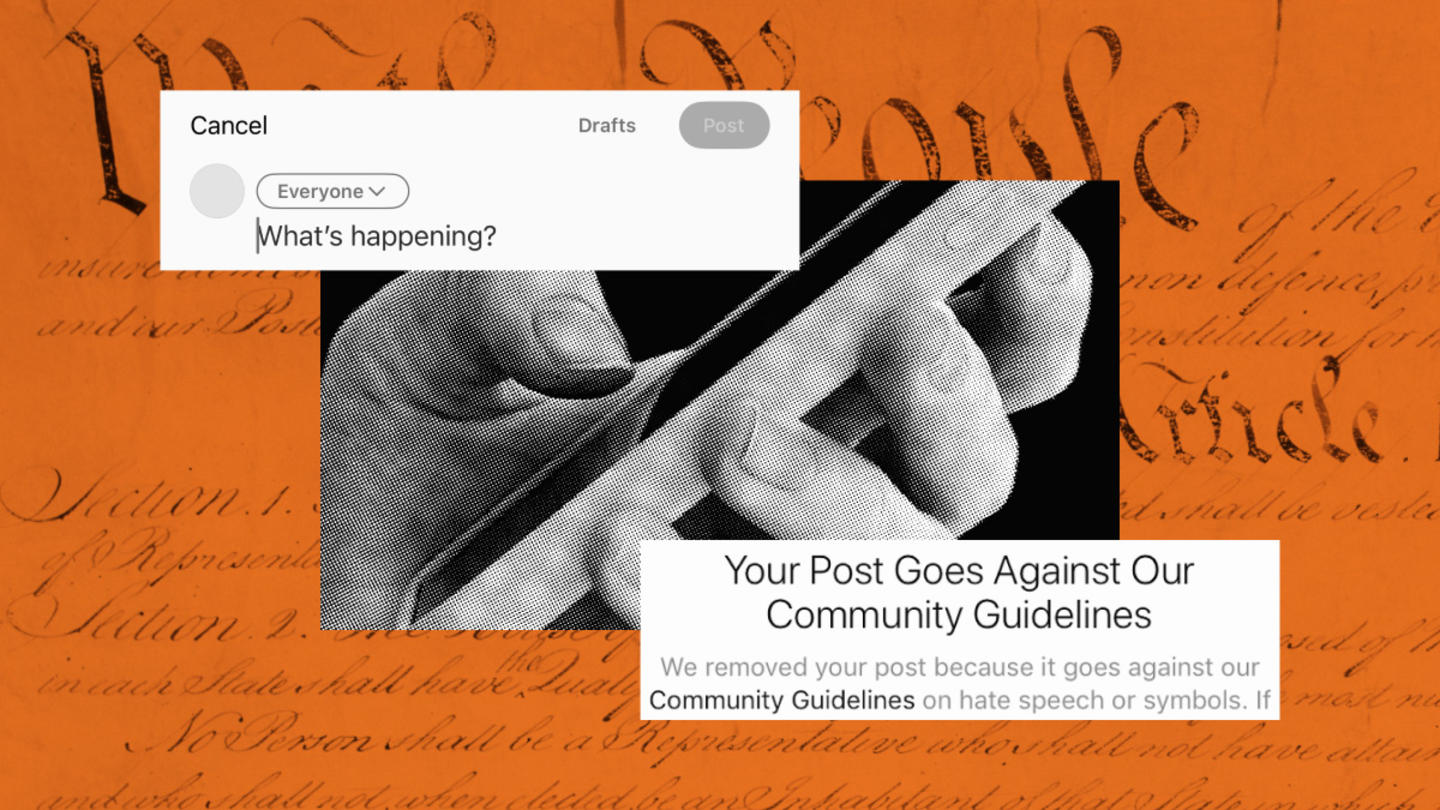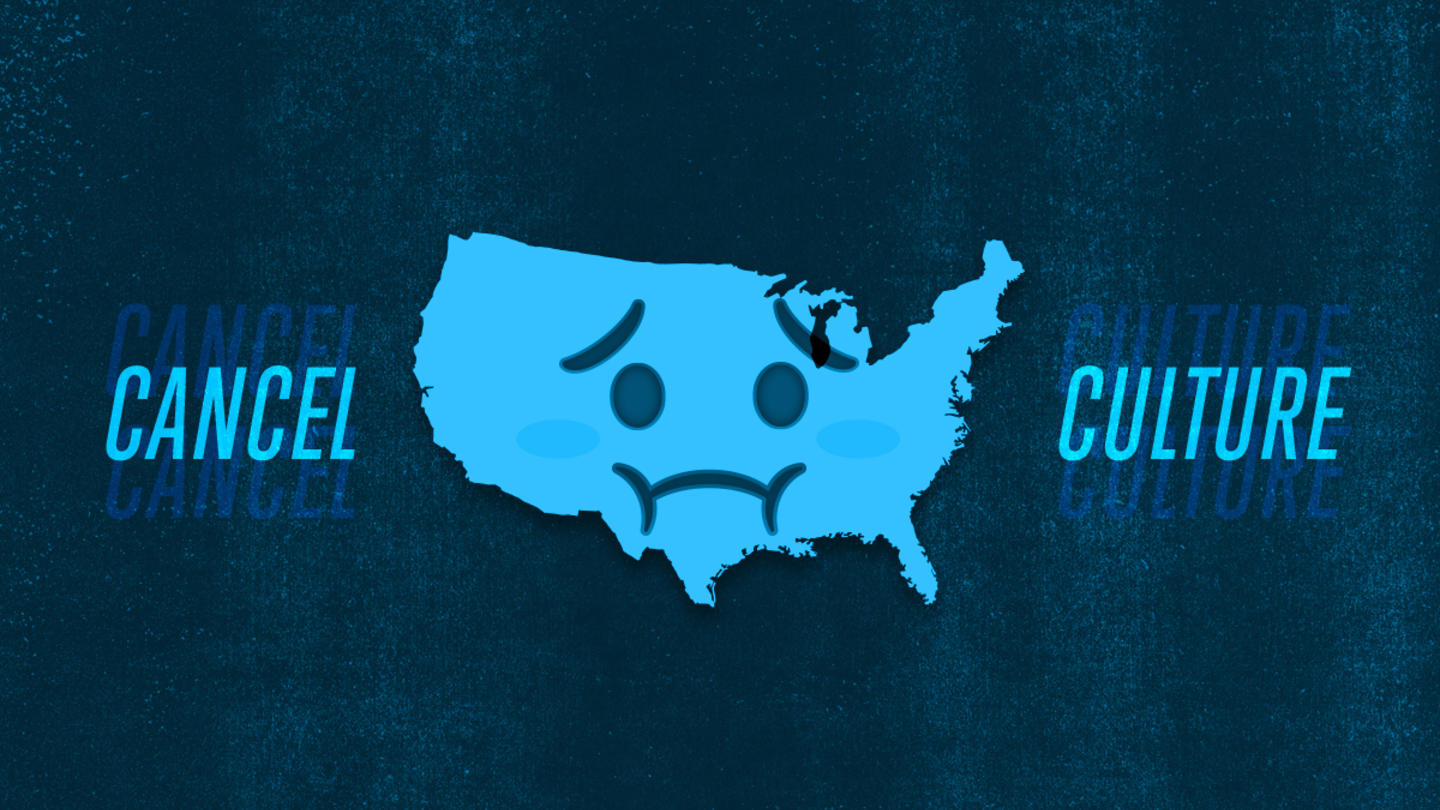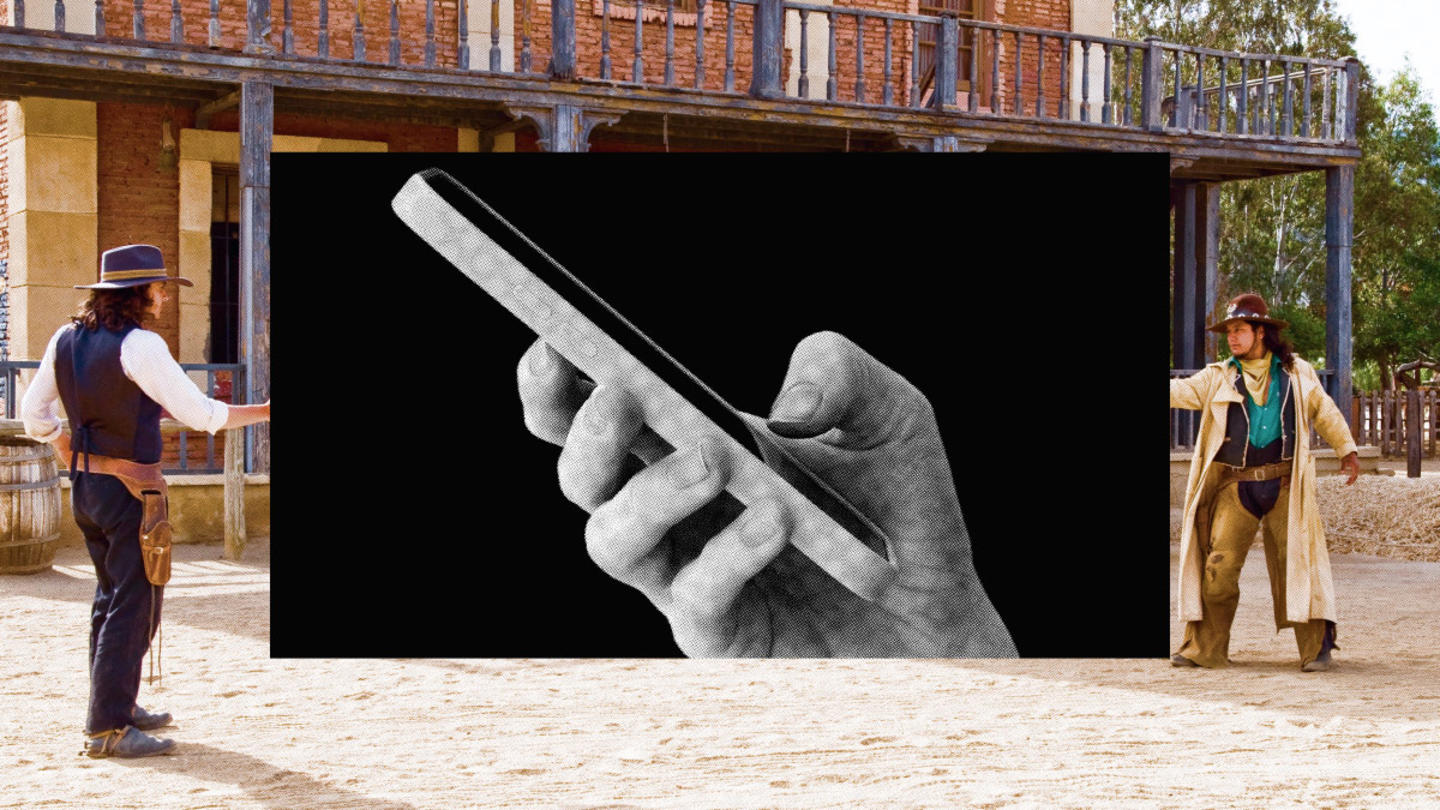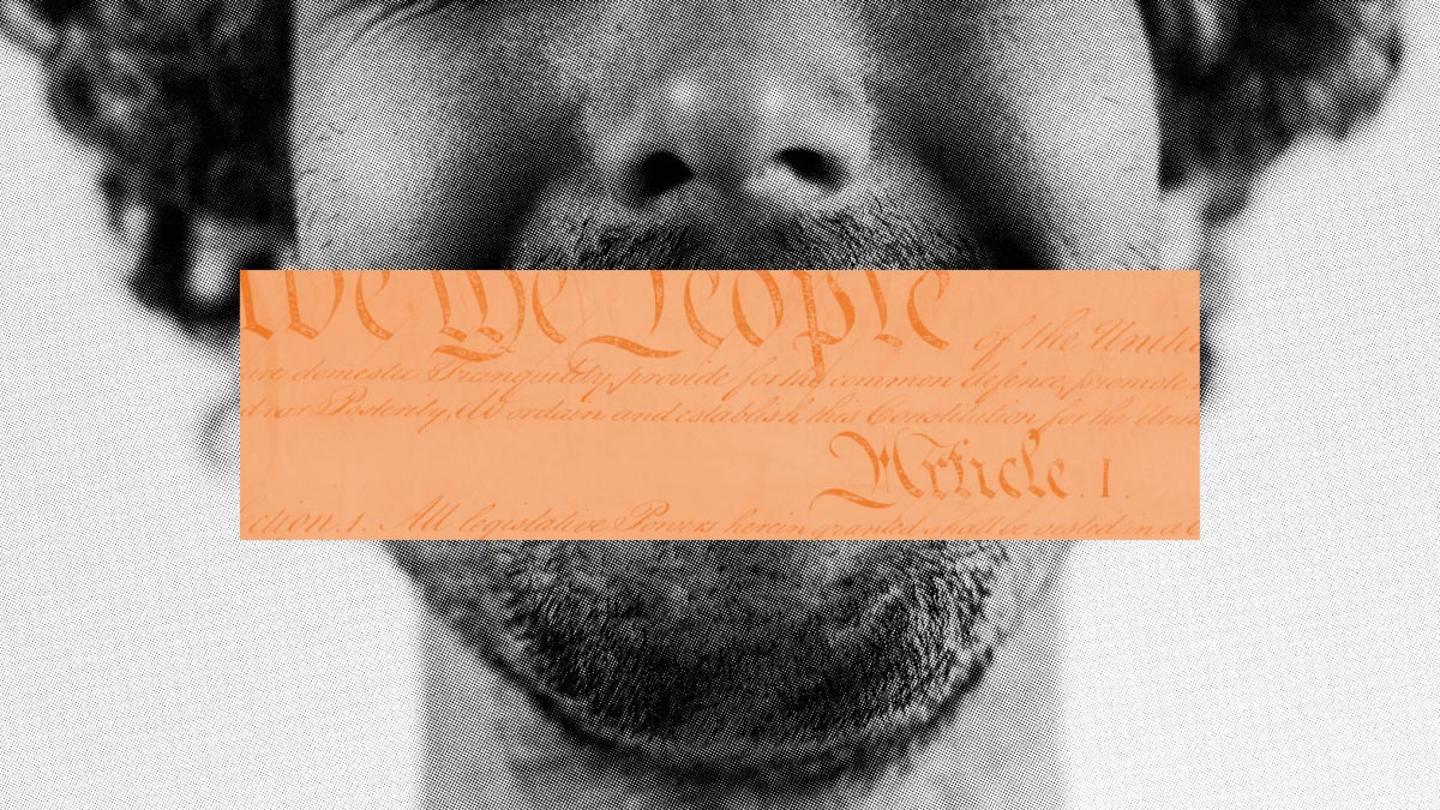This article was originally published by Stand Together Trust.
The greatest advances in human progress -- personal, social, and scientific -- flow from our ability to exchange different ideas and engage with each other freely and productively. Today, loud and extreme voices and views are often stifling the sharing of diverse views, making it more challenging to solve some of society's most pressing problems.
We talked with Zack Huffman, director of Courageous Collaborations at Stand Together Trust, about the sources of and solutions to this toxic division.
Stand Together Trust: Today, people assert that free speech and diversity are in tension with one another. Some would say that too much free speech threatens diversity while others would say that an overemphasis on diversity often leads to curtailing free speech. How does your work on Courageous Collaborations see the relationship between the two?
Zack Huffman: In my mind, this is yet another debate plagued by false choices. Free speech and diversity are not in tension. They're inextricably linked – you can't do one well without the other.
One of the most crucial ways we allow diverse people and groups to participate fully in democracy and public life is through the exercise of free speech.
Throughout our nation's history, the march towards progress for marginalized people and communities has been through the power of speech. Civil Rights, LGBTQ+ equality, women's suffrage, and more. All were driven by brave leaders who used free speech as their primary tool to call for equal rights and shared dignity. There's still work to be done. And that's why free speech is still as important to protect and defend as ever.
We should be incredibly wary of arguments that cast free speech aside for the sake of protecting diversity. If history has taught us anything, it's that chipping away at free speech only curtails our ability to harness the power of difference for good. Advocates for diversity must continue to lock arms with advocates of free speech if we want to fully realize the promise of America's ideals.
At the same time, those who believe strongly in free speech shouldn't cast diversity aside. I think the main reason people are wary of conversations about diversity is because of how it's often practiced, or portrayed, in our culture.
The reality is that appreciating diversity doesn't have to mean labeling or shaming people. In fact, if you want people to appreciate your unique contributions and challenges, labeling and shaming are some of the ways to guarantee people won't appreciate or listen to you. And most importantly, we should remember that diversity also means diversity of viewpoints. No one individual or group has a monopoly on good ideas, and just because two people are members of the same group doesn't mean they think alike.
Practicing diversity well starts with having the moral courage to check our own egos at the door. It's about appreciating the knowledge, experiences, and viewpoints of the person sitting across from us. If we actually listen, we'll likely learn something new.
Can you talk a little bit more about the role diversity has played in America's story? We're a nation founded on a set of common principles rather than a common background. How should we think about the role our differences play today?
One of the best ways I've heard the story of diversity in America told is by Interfaith America's President, Eboo Patel. In his last two books, Eboo talks about America as a "Potluck Nation" rather than the melting pot metaphor we've all heard before. When Eboo talks about the idea of a potluck nation, he means a society and culture where every person and group have something unique and valuable to contribute to the American project and story.
I really identify with and appreciate this metaphor. We live in a very large, diverse democracy – arguably the largest and most diverse in modern history. Difference is the norm. It's the operating standard.
The question we must ask ourselves is what do we do with that difference? Will we embrace one of our oldest national mottos—E Pluribus Unum (One from many)— which calls us to forge civic bonds across differences and join under the shared values articulated in the Declaration of Independence? Or will we allow fear and lack of openness towards "the other" to drive us apart?
Unfortunately, we're seeing too much of the latter today. Even though research clearly demonstrates there's an exhausted majority out there that's tired of toxic division, we're allowing ourselves and our communities to be driven apart by false perceptions of one another and fear of the "other." Too often, this quickly slips into contempt and hate. That's when you have a real problem on your hands.
The good news is that it doesn't have to be this way. There are thousands of national and local leaders out there impacting communities across the country, showing us what's possible when we lean into differences to learn, connect, innovate, and break down barriers for people.
There are many stories from the dozens of partners we work with that help illustrate what I mean. But to get specific, let's look at Narrative 4 as an example. At a time when politicians on both sides of the aisle are attempting to restrict what's allowed to be discussed in classrooms, Narrative 4 is proving that high school students can navigate deep difference quite well – in fact, they're thriving more because of it.
Narrative 4's secret sauce begins with a story exchange experience that establishes empathy and trust between high school students from different geographies, backgrounds, socioeconomic statuses, etcera. From there, these students take what they've learned from one another and go on a year-long learning journey together. They use literature, poetry, and art to not only learn through the works of great authors and artists but learn from one another as well. Using works like To Kill a Mockingbird, The Odyssey, or Apeirogon, students are provided a conduit to share divergent perspectives that relate back to their own lives and experiences.
What's better is that the research backs up the fact that this kind of listening and shared learning really works. It drives greater empathy and understanding for one another as well as the ability to hold difference without devolving into conflict. Those are key skills for any 21st century student to learn if we want them to be healthy, active citizens in our large and diverse democracy.
What does that mean for your work to protect civil liberties while also promoting collaboration across divides?
This is a key part of our strategy at Stand Together Trust. It's best to understand civil liberties and promoting collaboration across divide as two sides of the same coin.
On the one side, protecting civil liberties is important because in divided times people are more likely to be doxxed, censored, and silenced by those who disagree with them. It becomes very easy for these sorts of arguments to escalate quickly.
Take for example the protests surrounding the murder of George Floyd. After Floyd's murder, tens of thousands of Americans took to the streets to protest not only the unjust murder of Floyd, and the unjust murders of many others, but also the ongoing problems present in policing and many other areas of American life.
Even though research has shown that most of the protests were civil and peaceful, the media and overarching narrative focused on the ones that weren't peaceful – the events where there was property destruction, violence, or other uncivil behavior. It's important that Americans on both sides of the aisle reject the use of violence or threats of violence to achieve political objectives – that's not what a free society is about. But a free society also isn't about using instances of violence as a reason to threaten fundamental free expression rights like the right to protest.
Sadly, this is exactly what happened. Following the summer of 2020, state legislatures across the country ushered in a whole wave of state laws attempting to restrict protests. That's troubling because public safety and protest rights aren't mutually exclusive.
So, in partnership with several organizations, the Stand Together community worked to educate the public about what these overbroad rules would do to people's ability to show up and make their voice heard. We're doing that not just on protest rights, but on a whole bunch of other issues across the ideological spectrum. That's because these issues and rights transcend any left-right divide. No matter where you come from on the political spectrum, civil rights, like the right to peacefully protest, matter to you. That's why we support them for all Americans.
On the other side of the same coin is the idea of collaborating across differences. We're trying to inspire Americans to embrace and practice pluralism. All that means is providing space for people of different beliefs, backgrounds, lifestyles, etc. to participate fully in the political process and public life. Tools are already available that equip people to build environments where all can feel a sense of belonging because they are, in fact, respected.
What sorts of tools are we talking about?
There are many. Existing resources include the unifying inclusion program called "Diversity Without Division." It's developed by Irshad Manji, founder of Moral Courage College, and offered to the business community through a partnership with America's biggest association for HR professionals, the Society for Human Resource Management. Diversity Without Division builds the skills to turn contentious issues into constructive conversations — and healthy teamwork.
An additional initiative is "Heal America," a movement of local changemakers in communities across the country who address racial injustice by focusing on solutions and creating the space for diverse perspectives. This is important because we want to be able to advance bottom-up solutions that break down barriers for people. Taking different experiences and perspectives into account is crucial to arriving at win-win solutions.
This may sound like a no brainer, or really simple, but it's actually really hard to do in practice. It's especially hard to do when we're living in toxically divided environment like ours.
We're facing a major problem called collective illusion. This is when a member of a group goes along with a belief or behavior that they don't believe or want to act out, but they do so because they incorrectly believe the majority of people around them agree with the belief or behavior.
This phenomenon is at the core of our toxic division problem.
Data has reported time and again that most people are exhausted by the division we see around us, especially when it's exacerbated by the narratives that are discussed most online and in the 24-hour news cycle. Most people want to see us break through the division and get back to the shared values and shared aspirations we have for our country. But we struggle to get past the division because we're living in an environment that has told us everyone around us has adopted the most extreme view of a particular issue or principle.
Solving today's most pressing problems -- like policing and criminal justice reform, immigration and healthcare -- will take complex solutions. We're better positioned when we work across our differences and see them as strengths that can help us to find the best solutions for our society.
Learn more about Stand Together’s free speech efforts and explore ways you can partner with us.
